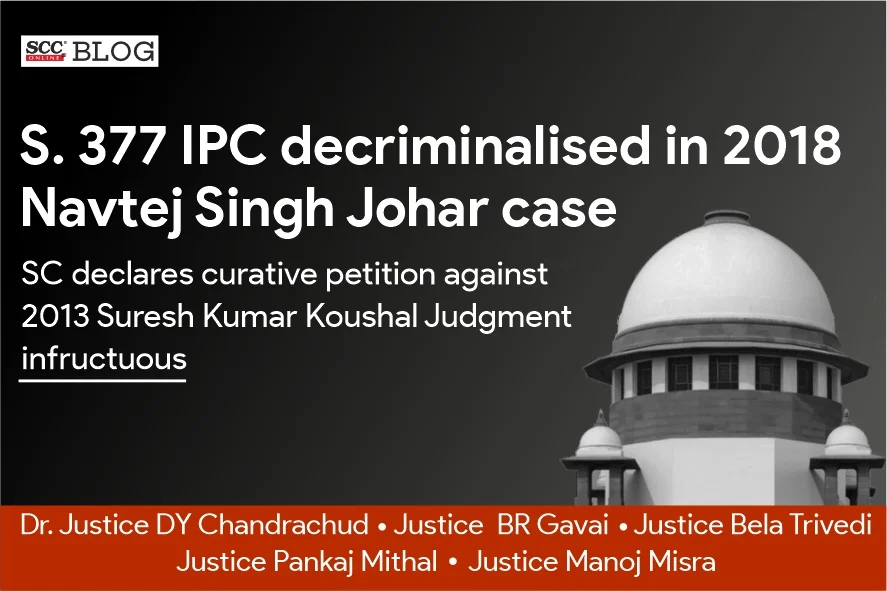Supreme Court: In a curative petition filed against Suresh Kumar Koushal v. Naz Foundation, (2014) 1 SCC 1 (‘2013 Judgment’), wherein a 2-Judge Bench while reversing Naz Foundation v. State (NCT of Delhi), 2009 SCC OnLine Del 1762, held that Section 377 of Penal code, 1860 (‘IPC’) merely defines a particular offence and prescribes its punishment and thus, it cannot be declared violative of Articles 14 and 15 of the Constitution of India, a 5-judge bench comprising Dr. DY Chandrachud, CJI, BR Gavai, Bela Trivedi, Pankaj Mithal and Manoj Misra, JJ. while closing the curative petitions, held that the curative petitions have been rendered infructuous by the judgment delivered in Navtej Singh Johar v. Union of India, 2018 10 SCC 1 (‘2018 Judgment’).
In 2018, a 5-Judge Constitution Bench comprising of the then CJ Dipak Misra and R.F. Nariman, A.M. Khanwilkar, Dr D.Y. Chandrachud and Indu Malhotra, JJ. in their landmark judgment held Section 377 IPC unconstitutional insofar it criminalised gay sex between consenting adults. The Bench which delivered three opinions along with the leading judgment, reversed the 2-Judge Bench decision in 2013 Judgment. The Delhi High Court in Naz Foundation (supra) had declared Section 377 violative of Articles 14, 15 and 21 of the Constitution, insofar as it criminalised consensual sexual acts of adults in private.
Also Read:








